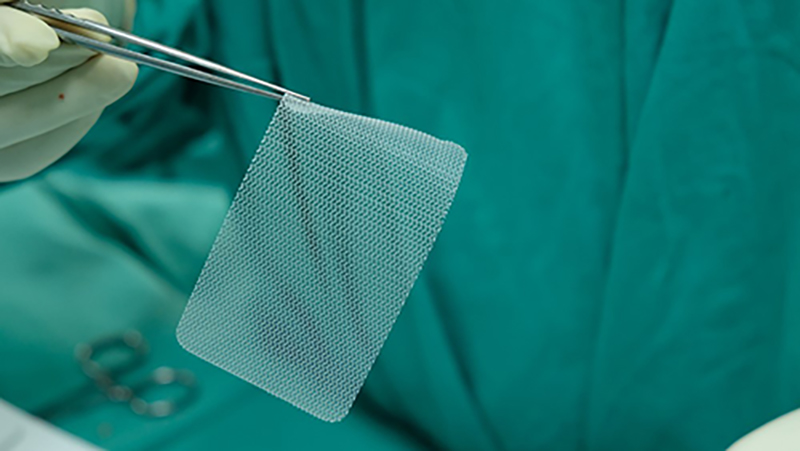What is a hernia?
A hernia is a common condition that occurs when part of an internal organ or tissue bulges through a muscle. Hernias can occur around the belly button, through a surgical scar, in the diaphragm, or in the groin (the area between the abdomen and the thigh on both sides of the body).
What is an inguinal hernia?
An inguinal hernia occurs when the intestines or fat from the abdomen bulge through the lower abdominal wall into the inguinal, or groin, area.
There are 2 types of inguinal hernias:
• Indirect inguinal hernias: This type of hernia is caused by a birth defect in the abdominal wall that is congenital (present at birth).
• Direct inguinal hernias: This type of hernia usually occurs in adult males. These are most often caused by a weakness in the muscles of the abdominal wall that develops over time, or are due to straining or heavy lifting.
Hernias can be on one or both sides of the abdomen. Direct inguinal hernias are more common later in life because the abdominal wall weakens with age.
An inguinal hernia is usually not dangerous. However, it can be painful, especially when lifting, bending, straining with a bowel movement, or coughing. Direct inguinal hernias usually occur in adult males whose abdominal muscles have weakened.
What are the symptoms of an inguinal hernia?
Symptoms of an inguinal hernia may include
• a bulge in the groin—the area between the lower abdomen and thighs
• a bulge in the scrotum in a male
• feelings of discomfort, pain, heaviness, or burning in the groin
Your symptoms may get worse when you strain, lift, cough, or stand for a long time and may get better when you rest or lie down. Laparoscopic hernia surgery
In laparoscopic hernia surgery, a surgeon makes several small cuts in your lower abdomen and inserts special tools to view and repair the hernia. The surgeon uses a piece of mesh to close and strengthen the abdominal wall.
Patients most often receive general anesthesia for laparoscopic hernia surgery. Recovery time after laparoscopic surgery may be shorter than after open hernia surgery.
What are the risks of hernia surgery?
Surgery to repair an inguinal hernia is quite safe. However, possible complications of hernia surgery include
• urinary retention
• infection
• swelling in the area you had surgery due to a buildup of blood, called a hematoma, or a buildup of blood plasma, called a seroma
• chronic or severe pain
• return of the hernia, which may require another surgery
Serious complications, such as damage to blood vessels or organs, are rare.
A hernia is a common condition that occurs when part of an internal organ or tissue bulges through a muscle. Hernias can occur around the belly button, through a surgical scar, in the diaphragm, or in the groin (the area between the abdomen and the thigh on both sides of the body).
What is an inguinal hernia?
An inguinal hernia occurs when the intestines or fat from the abdomen bulge through the lower abdominal wall into the inguinal, or groin, area.
There are 2 types of inguinal hernias:
• Indirect inguinal hernias: This type of hernia is caused by a birth defect in the abdominal wall that is congenital (present at birth).
• Direct inguinal hernias: This type of hernia usually occurs in adult males. These are most often caused by a weakness in the muscles of the abdominal wall that develops over time, or are due to straining or heavy lifting.
Hernias can be on one or both sides of the abdomen. Direct inguinal hernias are more common later in life because the abdominal wall weakens with age.
An inguinal hernia is usually not dangerous. However, it can be painful, especially when lifting, bending, straining with a bowel movement, or coughing. Direct inguinal hernias usually occur in adult males whose abdominal muscles have weakened.
What are the symptoms of an inguinal hernia?
Symptoms of an inguinal hernia may include
• a bulge in the groin—the area between the lower abdomen and thighs
• a bulge in the scrotum in a male
• feelings of discomfort, pain, heaviness, or burning in the groin
Your symptoms may get worse when you strain, lift, cough, or stand for a long time and may get better when you rest or lie down. Laparoscopic hernia surgery
In laparoscopic hernia surgery, a surgeon makes several small cuts in your lower abdomen and inserts special tools to view and repair the hernia. The surgeon uses a piece of mesh to close and strengthen the abdominal wall.
Patients most often receive general anesthesia for laparoscopic hernia surgery. Recovery time after laparoscopic surgery may be shorter than after open hernia surgery.
What are the risks of hernia surgery?
Surgery to repair an inguinal hernia is quite safe. However, possible complications of hernia surgery include
• urinary retention
• infection
• swelling in the area you had surgery due to a buildup of blood, called a hematoma, or a buildup of blood plasma, called a seroma
• chronic or severe pain
• return of the hernia, which may require another surgery
Serious complications, such as damage to blood vessels or organs, are rare.

During hernia surgery, surgeons may use a piece of mesh to close and strengthen the abdominal wall.
